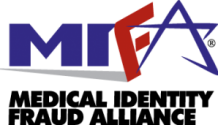One type of ID theft that isn’t as widespread as recent headline-grabbing data breaches — but can be just as devastating to the individual consumer — is medical ID theft.
As consumers, we have learned to try to protect ourselves from all sorts of identity theft.
It can range from someone getting medical goods or prescriptions to actual medical procedures in your name, which could leave you with the bill and the headache.
Several years ago, a Utah woman’s case made national headlines. A day after her purse was stolen by a methamphetamine addict, the thief gave birth under the victim’s name and abandoned the baby. The victim had to convince authorities, including child-protective services, that she hadn’t recently given birth or abandoned her baby. She had to go to court to remove her name from the birth certificate and fight the hospital about the bills.
Theft also could affect your health, said Eva Casey Velasquez, president and chief executive officer of the San Diego-based Identity Theft Resource Center, a nonprofit group that offers free help to victims (www.idtheftcenter.org). The “thief” and victim’s medical information, diagnoses and allergies to certain drugs are now intermingled, Velasquez told me. An added rub: It can be hard with medical privacy laws to get the full record or untangle them.
There’s also the financial harm, said Ann Patterson, program director for the Washington, D.C.-based Medical Identity Fraud Alliance, formed a few years ago by industry companies. Medical ID theft bills are not covered by the federal Fair Credit Reporting Act, which limits consumers’ losses if someone uses their credit information, but Patterson said the group has tried to educate legislators.
Medical ID theft affected about 2.3 million people last year, or about 3 to 6 percent of the national ID theft cases. According to the group’s 2014 data, two-thirds of victims had to pay out of pocket, or an average of $13,000.
Velasquez said most consumers tell her center they have not been held responsible for bills, but it can vary. Sometimes the hospital system or the insurer can be left footing the bill, which just means the costs are borne by all consumers, she said.
Incidents of medical ID theft are growing; they were up 21 percent in this year’s survey and have doubled in the five years the group has been conducting the survey. Patterson said she wouldn’t be surprised if the numbers rise in the coming years as thieves sit on the data from the large national breaches and then attack victims when their guard is down.
Click here to read the full article and learn tips to protect yourself.
September 4, 2015 by Betty Lin-Fisher, Akron Beacon Journal
